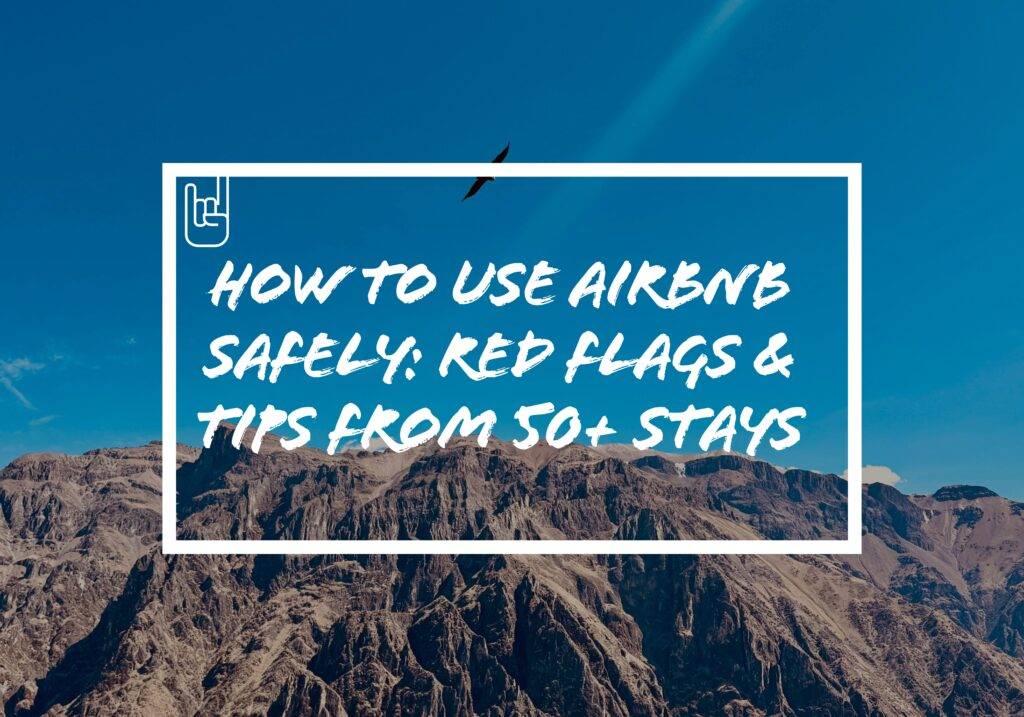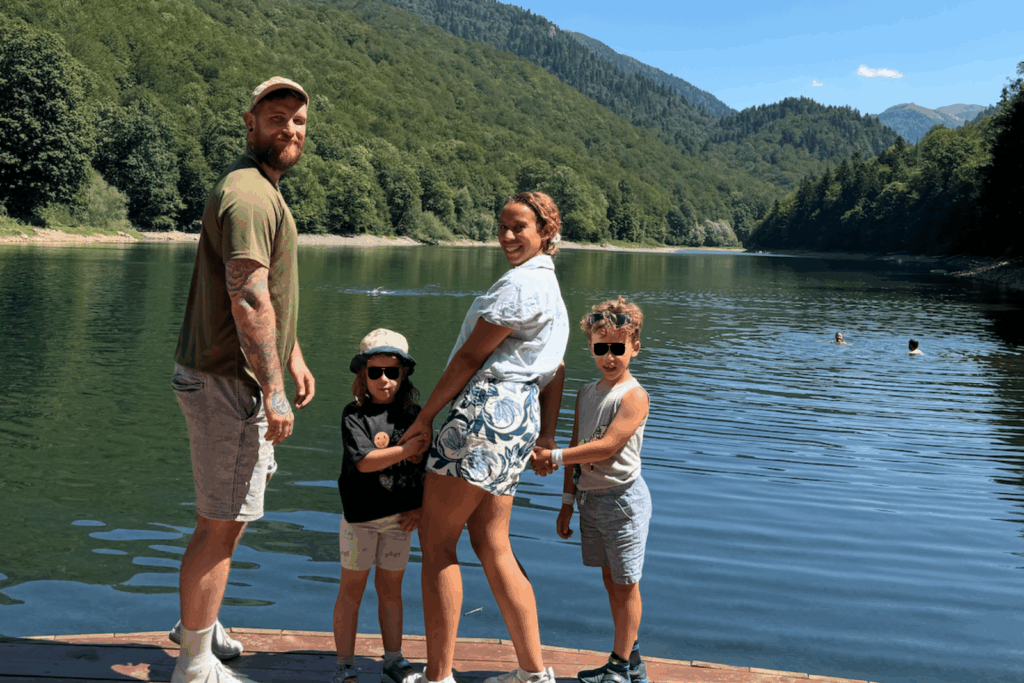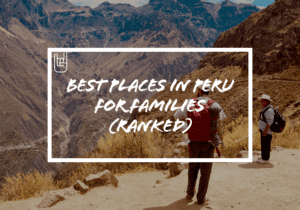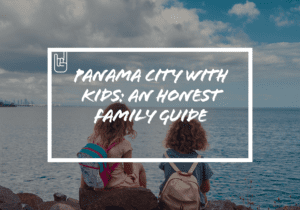How to Use Airbnb Safely: Red Flags & Tips From 50+ Stays
Airbnb can be amazing, spacious apartments, local neighbourhoods, kitchens that save you from another restaurant meltdown, or it can be the reason you swear never to book anything without triple-checking the photos ever again. After months travelling across Latin America with kids, we’ve stayed in more than 50 Airbnbs, and we’ve seen pretty much everything: the great, the questionable, and the “why is there a window that leads into another family’s kitchen?” type situations.
Most Airbnb problems happen because travellers don’t know what to look for. The red flags are subtle. The listings can be misleading. And the reviews? They often hide the real issues behind polite wording like “great value” or “cozy space.”
This guide is the version we wish existed when we started.
Not generic advice like “check reviews.” You already know that.
Instead, you’ll get:
How to use Airbnb safely
The red flags guests actually need to look for
How to avoid sketchy listings
What we check before booking
Common Airbnb downsides nobody warns first-time users about
Real examples from our stays across Latin America
Tips specifically for families
If you want your next Airbnb to be clean, safe, exactly as advertised, and definitely not a surprise basement room with fluorescent lighting, you’re in the right place.
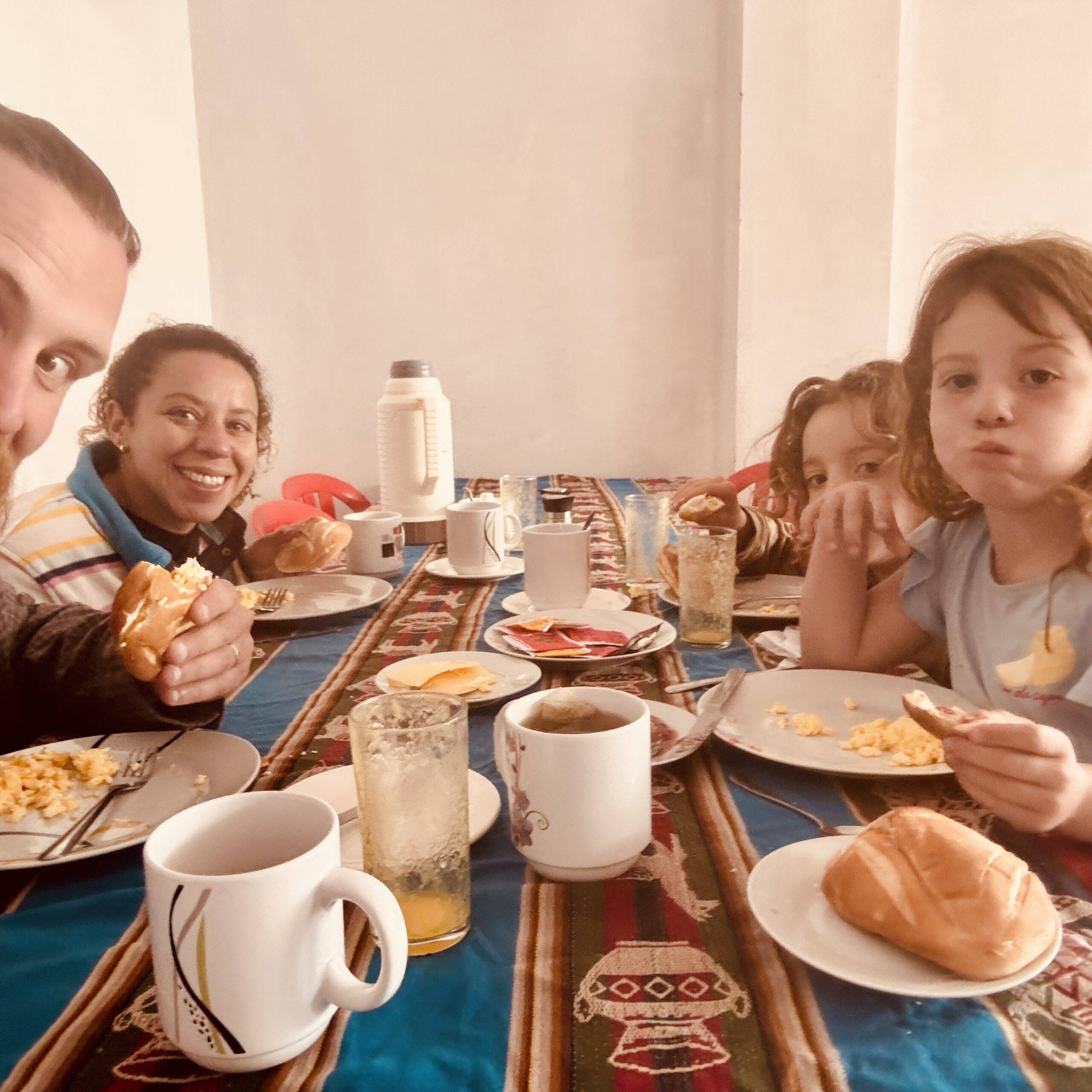
How to Use Airbnb for the First Time (And Actually Avoid the Mistakes We Made)
If you’re new to Airbnb, the whole thing can feel a bit like online dating: glossy photos, suspiciously perfect descriptions, and a whole lot of “trust me, this place is great!” energy. After dozens of stays across Latin America, we finally figured out a system that actually works, and saves you from walking into a room that smells like damp socks and broken promises.
Here’s the simple, real-life version of how to use Airbnb safely, especially if you’re travelling with kids.
1. Set Up Your Account (The Easy Part Everyone Ignores)
Airbnb pushes you to upload ID and verify your details, and honestly… do it.
Hosts treat verified guests differently. Faster replies, fewer weird questions, lower chances of cancellations.
Tip: Use a bank card that doesn’t slap you with foreign transaction fees (Revolut/Wise are lifesavers).
2. Use Smart Search Filters (The Ones Families Actually Need)
Don’t just search by price.
Turn on:
Entire place (avoid shared anything)
Superhost
WiFi (non-negotiable if you work on the road)
Kitchen
3 bed rooms (Not always but this is great if you have 3 kids)
Washer (months of travel? lifesaver)
Optional but game-changing:
Self check-in
Last minute cancel
“Family-friendly” (this removes the rooms with 17 glass ornaments and 0 common sense)
3. Read the Listing Like a Detective, Not a Tourist
This is where most people get burned.
Don’t trust the photos alone, look for what’s not shown:
No wide-angle living room shots? Tiny.
Only close-ups? They’re hiding the layout.
No photo of the outside? Possible construction zone.
No kitchen photo? There is a kitchen… technically.
If the bed looks like a prison mattress, it is.
4. Learn How Airbnb Payments Actually Work
This trips up a lot of first-timers.
Airbnb charges you upfront, but doesn’t pay the host until check-in.
You can’t pay cash.
You should never pay outside the app, that’s how scams happen.
Refunds go through Airbnb support, not the host.
Tip: Screen-shot EVERYTHING. Messages, instructions, photos, it all protects you if things go wrong.
5. Message the Host Before You Book (This Reveals Everything)
You only need one simple message:
“Hey! Before I book, can you confirm the WiFi speed, the exact location area, and whether there’s any construction noise nearby?”
The response tells you everything:
Fast + helpful = good host
Slow + vague = red flag
Overly defensive = run
“Wifi is good” = unreliable
Good hosts love questions. Bad hosts avoid them.
6. Don’t Book Until You Check Reviews (Read Between the Lines)
Reviews lie, but in very predictable ways.
Look for phrases like:
“Great value” = old, worn, or basic
“Good for a short stay” = not comfortable long-term
“Close to nightlife” = loud
“Photos accurate” = basic but honest
“Host was lovely but…” = something’s wrong
If multiple reviews mention smell, mould, insects, noise, or confusing check-in, skip it immediately, even if you really liek it, do not ignore the red flags.
Also read: SafetyWing vs HeyMondo
7. And Finally, Trust Your Gut (It’s Usually Right)
If something feels off?
If the listing feels too perfect?
If the photos give “serial killer minimalism” vibes?
Just close the tab.
There are thousands of Airbnbs.
You don’t need the one that sends you home with a story you never wanted to tell.
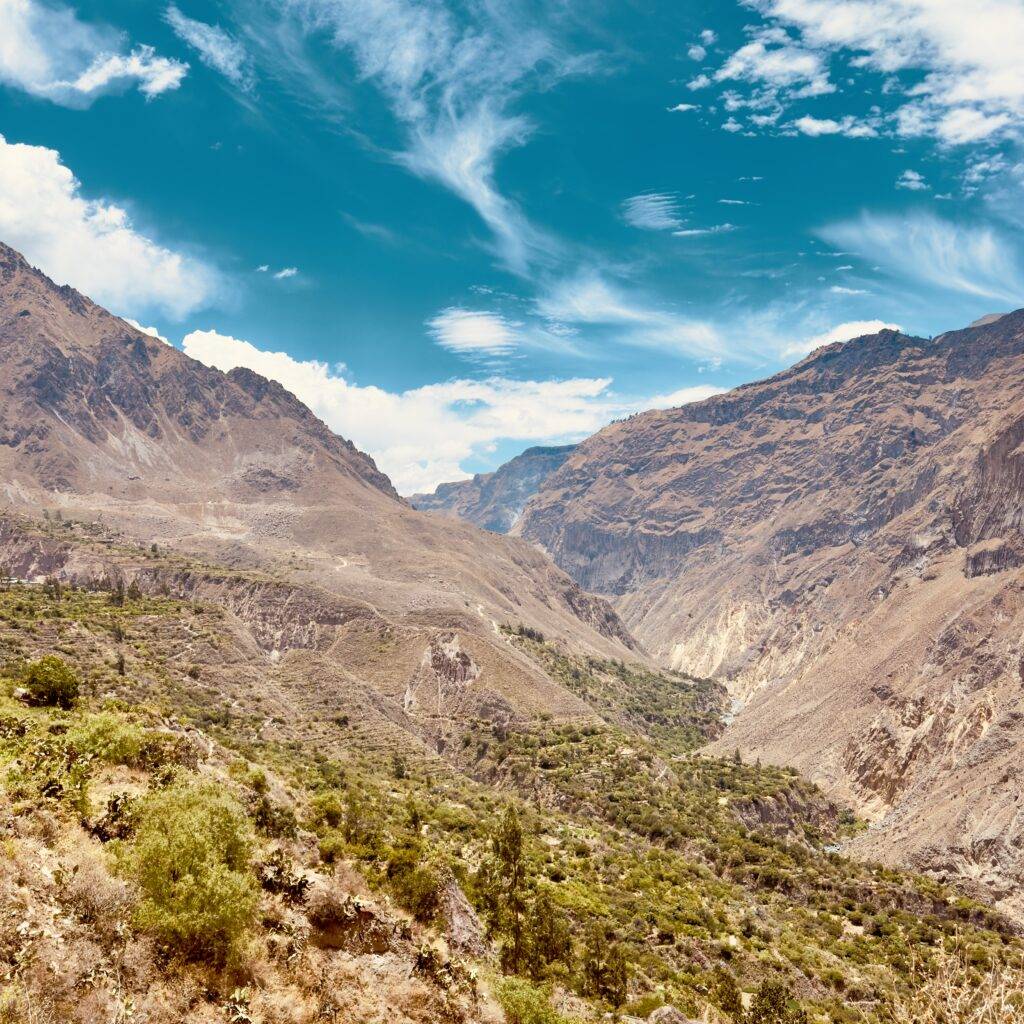
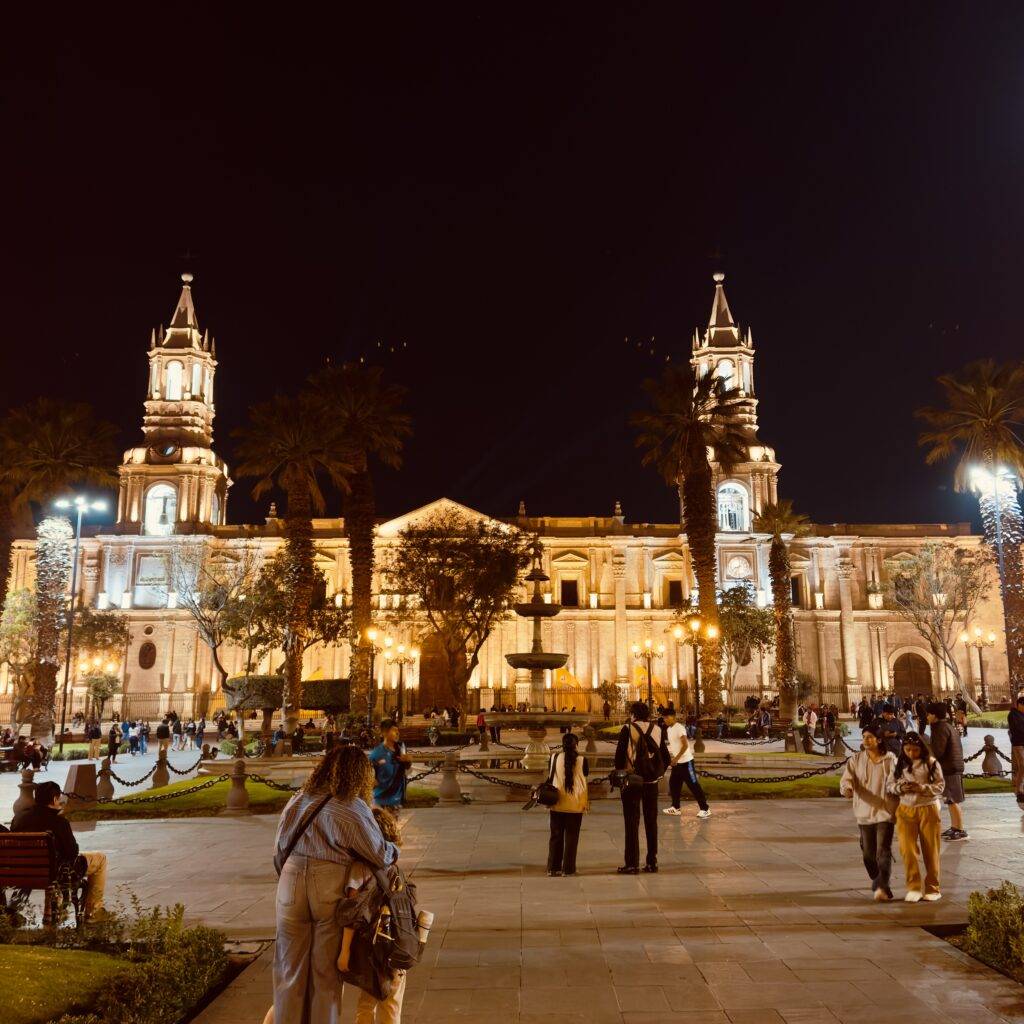
Is Airbnb Safe? (Straight Talk for Families)
The honest answer: Airbnb is usually safe for families, but only if you’re picky.
Not paranoid. Not overthinking. Just picky in the right places.
We’ve stayed in homes where the host left fresh fruit, extra blankets, and the WiFi password on a handwritten note. And we’ve stayed in places where the front door lock barely worked and the street felt questionable the second the sun set. Safety isn’t about the platform, it’s about the specific listing.
In Latin America, we found safety varies more by neighbourhood than by the property itself. A beautiful apartment can sit in an area locals tell you to avoid at night, and a simple home in a quiet barrio can feel safer than any hotel. We learned to always ask the host directly:
“Is this area safe to walk at night with kids?”
The tone of their reply tells you more than any marketing line.
Or we research safe area in the cities or towns and then only search for them.
Inside the property, things like door locks, window security, balcony railings, staircases, and water pressure matter far more than people expect.
Is Airbnb safe?
For us, yes, because we treat every listing like we’re choosing a home for our kids, not a weekend stay for ourselves.
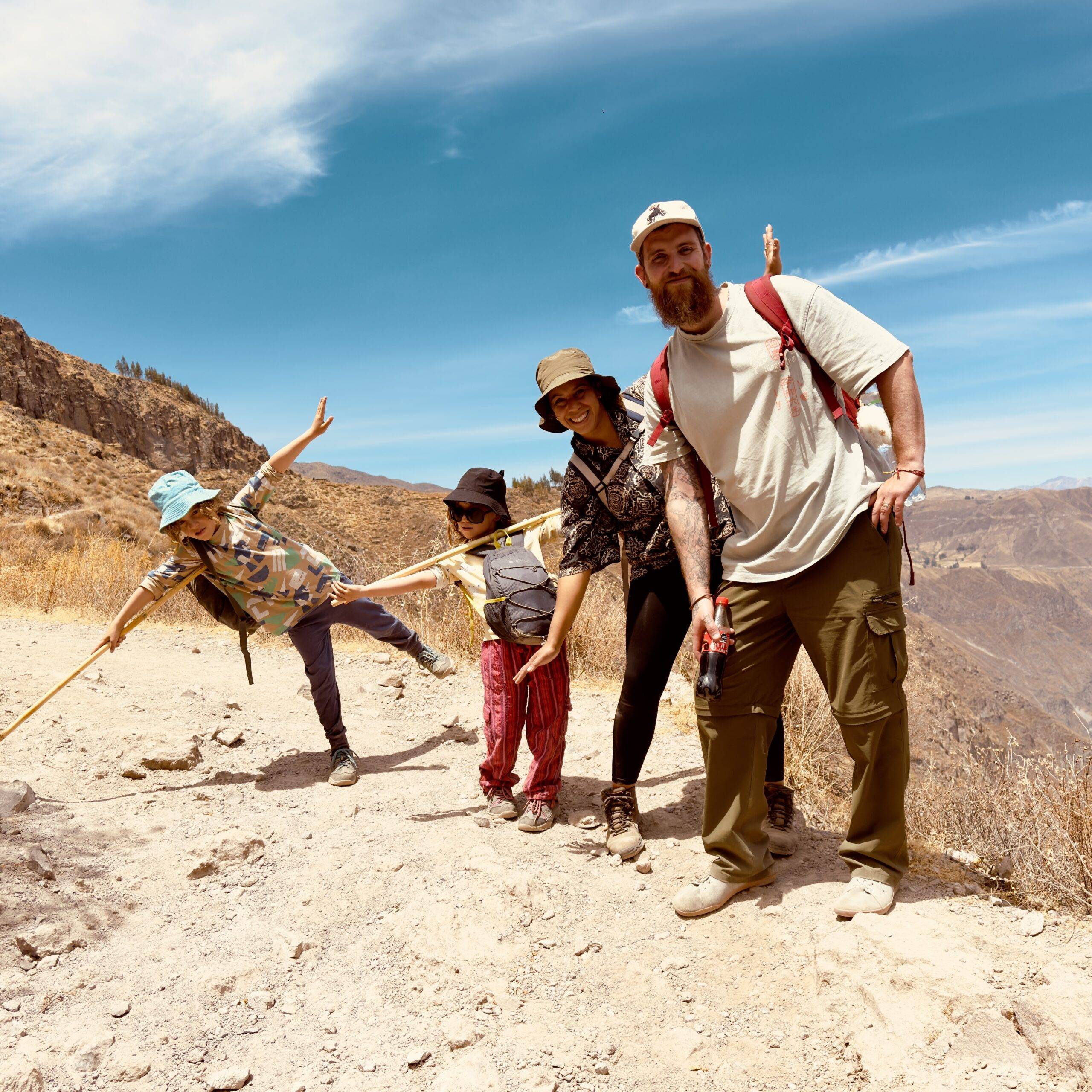
Airbnb Red Flags (We Learned These the Hard Way)
Here’s where things get interesting. After 50+ stays, we can scroll through an Airbnb listing and know within 8 seconds whether it’s going to be a “this is lovely” stay or a “we need to leave immediately” situation. Most red flags aren’t dramatic, they’re subtle. Tiny details that reveal the whole picture if you know how to read them.
Like the time we booked a place that looked huge in the photos but turned out to be a perfectly small box room with small bedrooms of it. Or the apartment described as “in the heart of the city” which was absolutely true, if by heart you mean directly above a nightclub that didn’t believe in sleep.
Certain patterns always repeat themselves:
Missing photos usually mean something’s wrong, especially the exterior or bathroom.
Hosts who dodge simple questions (“Is the WiFi strong?” “Is it noisy at night?”) are almost always hiding something.
Prices that are too low for the area usually come with a trade-off, often noise or safety.
Vague descriptions (“cozy,” “authentic,” “lively”) are code words once you’ve travelled enough.
New listings with glowing reviews can sometimes be legit… or the host’s friends doing them a favour.
Sometimes the place is fine, just not for families. Sometimes it’s a genuine mistake. And sometimes?
It’s absolutely a listing you should back away from slowly.
Red flags aren’t dramatic.
They’re quiet little hints that say, “This might not be the experience you want.”
Learn to spot those, and Airbnb suddenly becomes 100 times safer, easier, and far more enjoyable.
We also learned that good travel insurance matters more with Airbnb than hotels, if a stay goes wrong or a host cancels last-minute, having proper cover in place takes all the stress out of the situation.
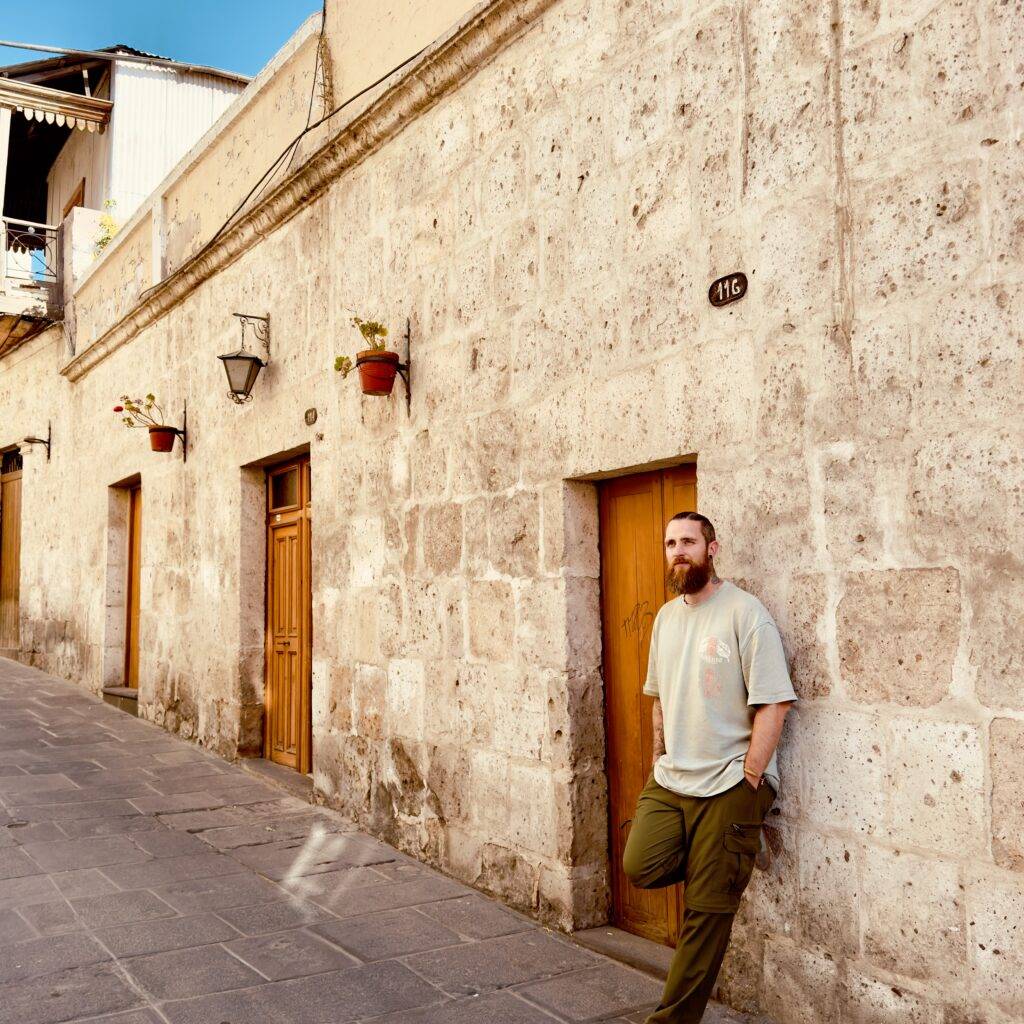
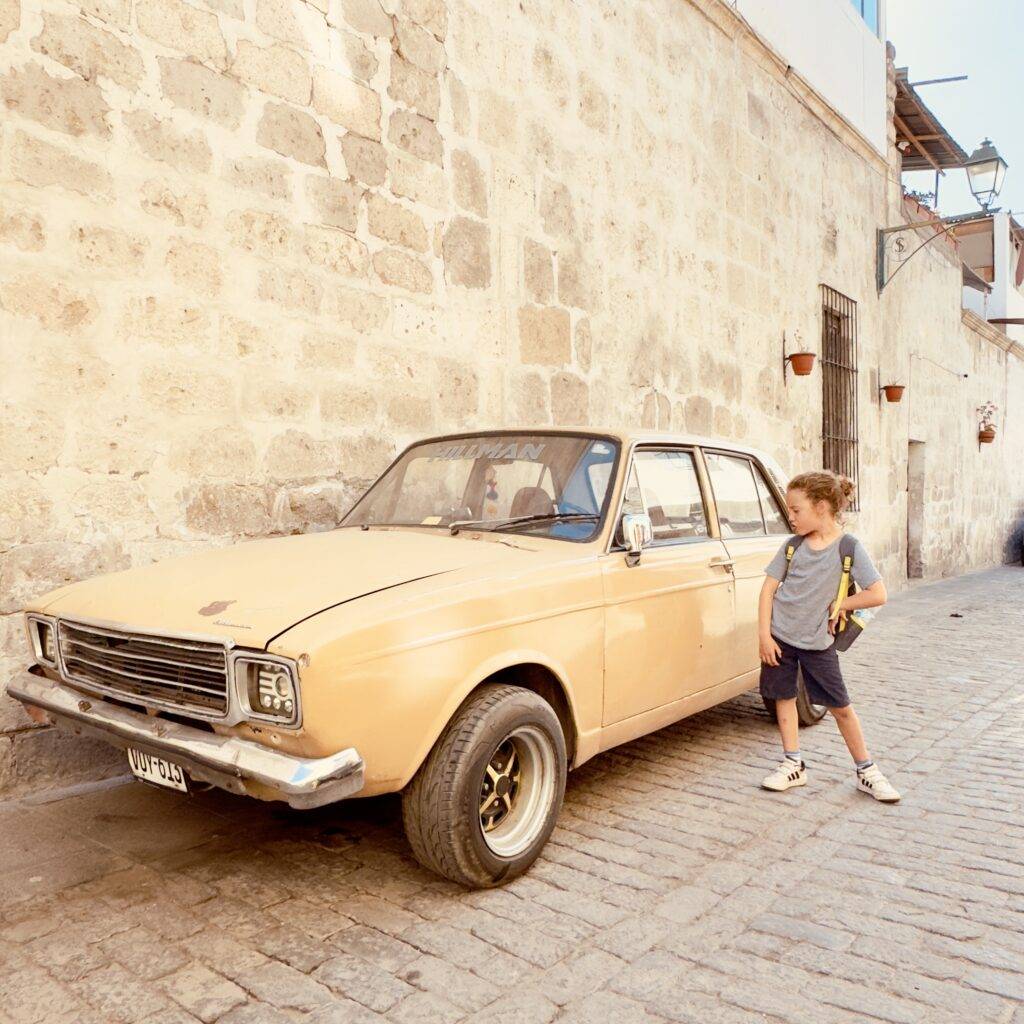
What We Now Check Every Single Time (Learned the Hard Way)
Before Latin America, we thought booking an Airbnb was as simple as picking something pretty and reading a few reviews. After Latin America? We have a whole rhythm to the way we book, because it turns out the difference between a great stay and a very questionable one usually comes down to tiny things you only learn after you’ve messed up a few times.
And honestly? Most people scroll through listings too fast. But when you’re travelling with kids, you can’t rely on luck, you need consistency. So here’s the quiet little routine we now follow, the one that saves us from the damp rooms, dodgy neighbourhoods, and “oh wow, that wasn’t in the photos” surprises.
1. Photos That Tell the Truth, Not a Story
You can’t trust every photo on Airbnb, but you can read them like clues.
We look for wide shots, daylight, the exterior of the building, and a real kitchen (not just a kettle sitting next to a microwave). Missing rooms usually mean those rooms aren’t great — we learned that the hard way.
2. Reviews That Mention the Stuff That Actually Matters
Reviews saying “Great stay!” tell you nothing.
We scan for the practical bits: noise, cleanliness, WiFi strength, neighbourhood feel, hot water, and whether the host was responsive. If multiple people mention the same issue? Believe them.
3. The Host’s Energy (Yes, You Can Feel It)
A simple message before booking says a lot.
Ask something direct “Is the WiFi strong enough for video calls?” or “Is the area quiet at night?”
Their tone reveals whether they’re organised, honest, and reliable. A good host answers clearly. A vague one dodges every question.
4. The Neighbourhood Check (Google Maps Never Lies)
We don’t just check the pin, we zoom in.
Is it by a nightclub? A highway? An empty street? A questionable alley?
We cross-check with Street View when possible. A great apartment in the wrong area can ruin the whole stay.
5. The Tiny Details That Make or Break a Family Stay
These are the things we didn’t think to check until we suffered through them:
Does the apartment get natural light?
Are there fans or AC in hot areas?
Is there an oven?
Are there windows that close properly?
Is the kitchen usable or just decorative?
You’d be shocked how many “kitchens” have one fork, a pan older than Peru’s volcanoes, and nothing else.
6. And Finally, Our Gut Test
If something feels off, even slightly, we skip it.
We’ve learned that gut feeling is basically your brain recognising patterns before you consciously do.
Airbnb isn’t about perfection, it’s about predictability.
And being picky upfront makes everything downstream easier: fewer surprises, fewer refunds, fewer “let’s never talk about this again” nights.
If a listing feels even slightly uncertain, we sometimes switch to Booking.com stay instead, both give you an extra layer of predictability that’s really reassuring on long trips.
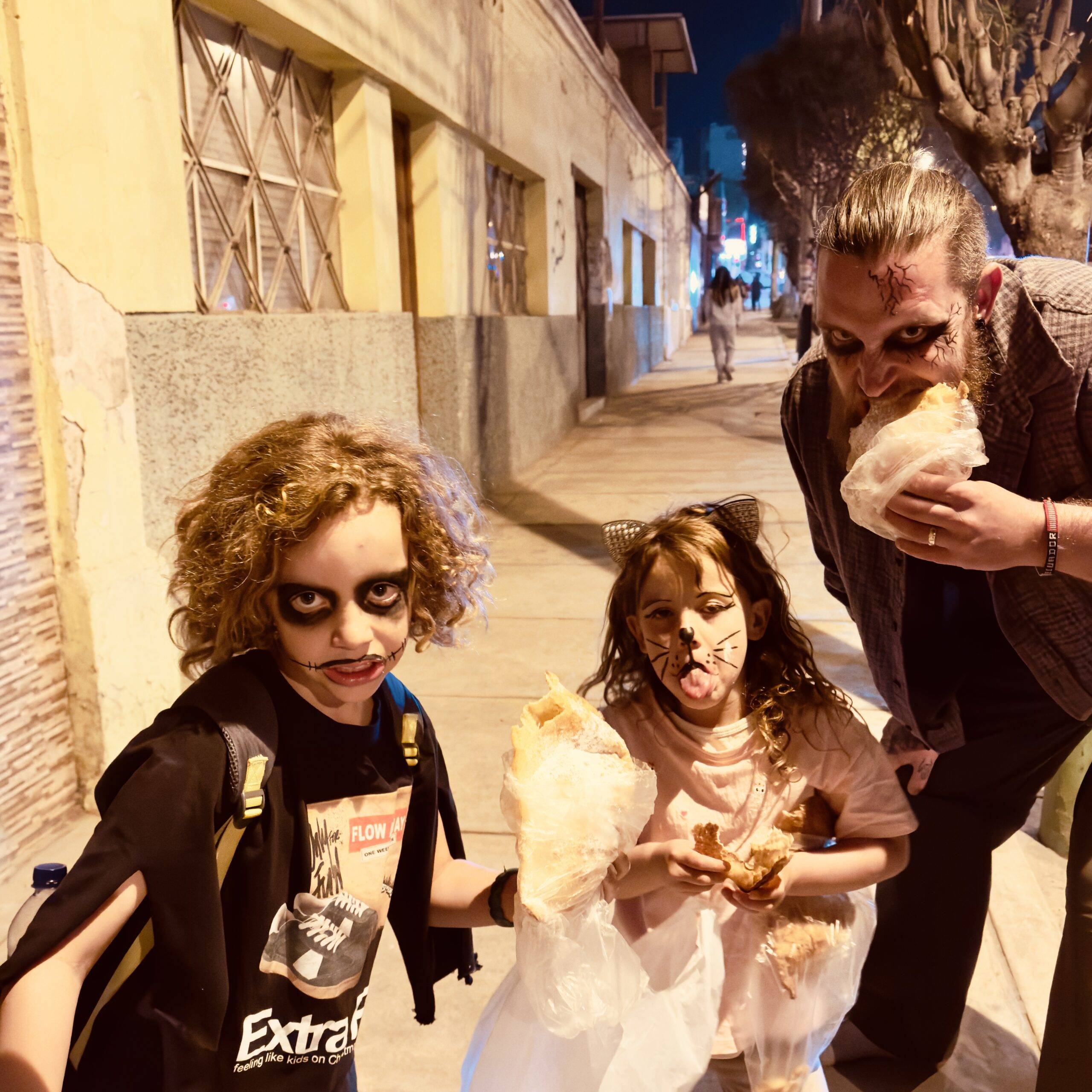
The Downsides of Airbnb (The Stuff Nobody Talks About)
For all its good points, Airbnb isn’t perfect, and pretending it is doesn’t help anyone. After months of moving around Latin America, we hit the exact same problems travellers everywhere complain about, and honestly? Some of them got old fast. Airbnb can be fantastic, but it comes with quirks you don’t see on the glossy homepage.
Let’s talk about the downsides that actually matter, especially if you’re travelling as a family and relying on your accommodation to literally keep everyone sane.
1. Cleaning Fees (The Silent Budget Killer)
Sometimes they’re reasonable.
Other times they cost more than the nightly rate, and you’re still expected to strip the beds, take out the rubbish, and leave the place “as you found it.”
We’ve stayed in Airbnbs where the host charged a hefty cleaning fee but clearly hadn’t cleaned… anything. Then on top of that expected us to clean the apartment too, which then he lef us a bad review as it was not spotless.
2. Inconsistent Standards (Hotels Don’t Have This Problem)
One stay is spotless and spacious.
The next has a shower that whispers warm water like it’s doing you a favour.
Airbnb has no real consistency, which can be… thrilling… but not always in the fun way.
3. Last-Minute Cancellations (Yes, It Happens)
Hosts can cancel on you hours before check-in, often with no explanation. Airbnb may refund you, but they won’t magically find you a replacement and during high season, that’s stressful.
We had one host cancel after we arrived in the city. Not fun with kids and backpacks.
4. Chores You Didn’t Sign Up For
Why am I doing laundry at an Airbnb I paid a cleaning fee for?
Why am I taking out the trash?
Why am I being told not to use the aircon “too much”?
Why am I expected to have cold showers.
Some hosts expect hotel-level money but house-share-level responsibilities.
5. Noise You Can’t Control
You can filter for everything except your neighbour’s love of reggaeton at 3 a.m.
We’ve had:
nightclub vibrations
dogs with unresolved emotional issues
motorbikes doing laps
roosters who didn’t get the memo on sunrise
Airbnb doesn’t come with soundproofing.
6. “Kitchen” Doesn’t Always Mean Kitchen
A shelf, a kettle, and a single frying pan is not a kitchen.
Especially when you’re travelling with kids.
We learned quickly to check for actual photos, because the word “kitchenette” covers a multitude of sins.
7. You’re On Your Own if Something Breaks
Hotels = someone appears with a replacement key, towel, or remote.
Airbnb = message the host, hope they see it, hope they care, hope they have a spare key.
Most hosts are great, but the ones who aren’t… well, you’ll know.
8. The “Surprise Factor” (Not Always the Good Kind)
Even with filters, reviews, and messages, Airbnb has a certain lottery feel.
A place can look perfect online and still feel off when you walk through the door.
That’s just part of the deal.
Airbnb is still worth it, we wouldn’t keep using it otherwise, but knowing the downsides helps you manage expectations so the little annoyances don’t wreck your stay.
We also keep a reliable hotel option bookmarked on Booking.com and make sure our travel insurance and mobile WiFi are sorted, because when an Airbnb cancels last-minute, you want backups that don’t add more stress.
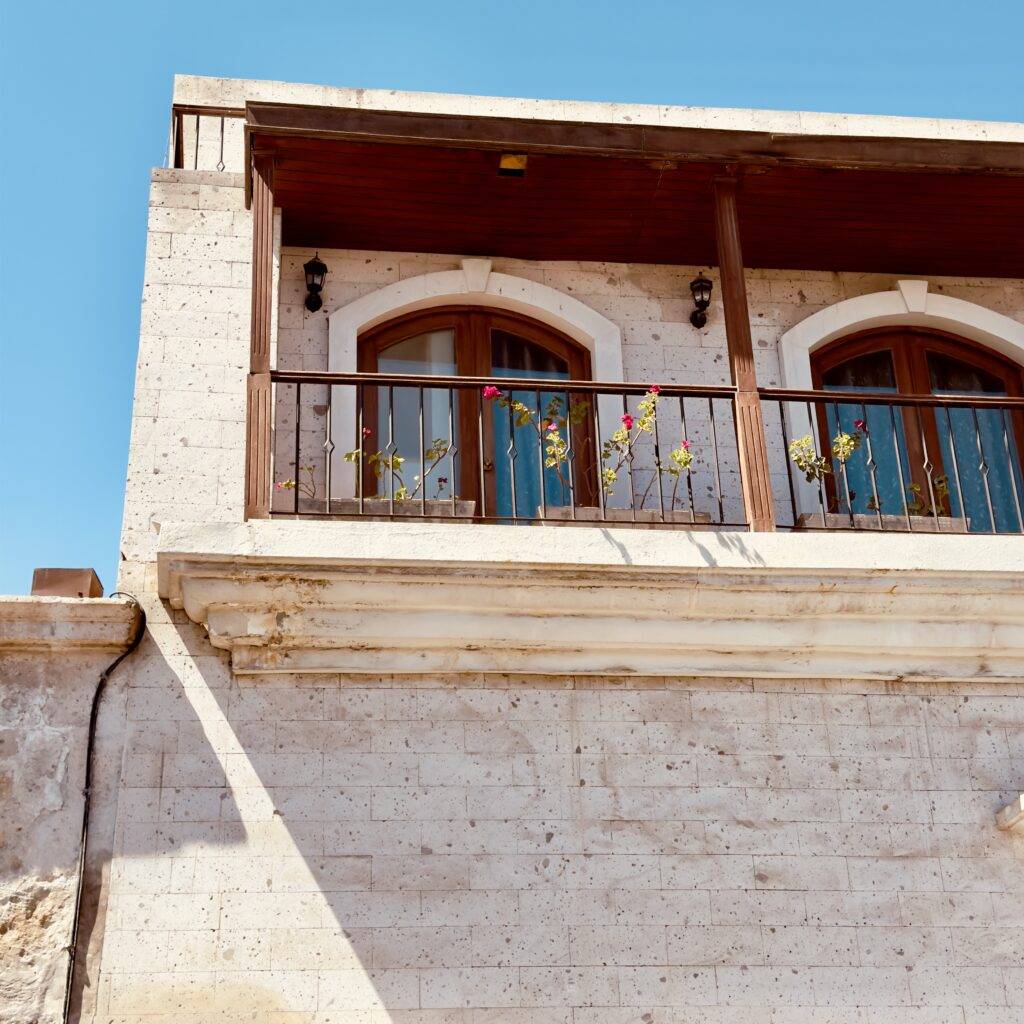
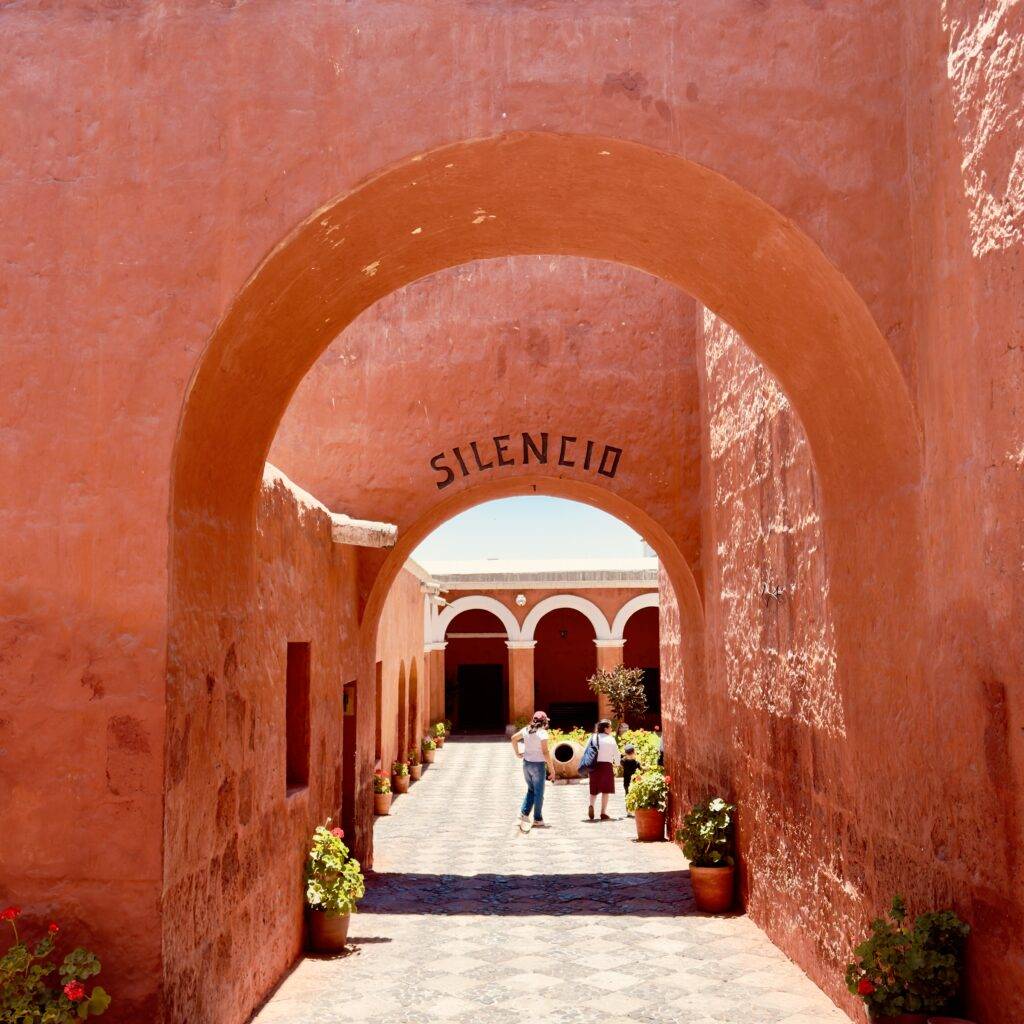
How to Avoid Bad Airbnb Stays (The System We Now Use Every Single Time)
If there’s one thing long-term travel teaches you, it’s that bad Airbnbs almost never come out of nowhere. There are always signs, tiny ones, buried ones, ones you only notice after you’ve dragged two sweaty kids and four backpacks up three flights of stairs to a place that smells like old towels and regret.
After 50+ stays across Latin America, we ended up with a simple rhythm that keeps things smooth: how we choose a place, how we double-check it, and how we handle problems quickly so they don’t consume the trip. It’s not complicated, but it works.
Before You Book
(The Part That Saves You 90% of Problems)
We used to scroll too fast. Now we slow down and treat every listing like we’re picking a home, not just a bed.
We start with the essentials: the photos, the host’s tone, the neighbourhood feel. But the thing that changed everything? Messaging the host before booking. One quick question about WiFi speed or night noise tells you more about the quality of the stay than any review.
Hosts who reply clearly and confidently = good sign.
Hosts who dodge simple questions = future headache.
We also “validate” the listing with a little detective work, zooming in on Google Maps, checking if reviews match the description, and scanning for those subtle “something’s off here” vibes.
Most bad stays could be avoided in this one phase alone.
Before You Arrive
(The Reality Check Phase)
Even good listings can fall apart if communication is messy. A week before check-in, we always send a short message:
“Hey! Just confirming the check-in code / instructions. Has anything changed since we booked?”
This one line saves you from:
broken key boxes
locked gates
old codes
unclear directions
hosts who forgot you were coming
If a place feels slightly uncertain, we’ll even ask for a fresh photo, not of the whole home, just something small like the entrance or living space. A genuine host won’t mind. A sketchy one will suddenly go quiet.
Then we screenshot everything: check-in instructions, the map pin, host messages. If anything goes sideways, Airbnb support loves receipts.
During Your Stay
(Where People Freeze But You Shouldn’t)
Here’s the part travellers mess up: when something’s wrong, they wait. They try to “be nice.” They hope it fixes itself.
Don’t.
Airbnb works on documentation.
If something is off, WiFi not working, no hot water, broken lock, take a quick photo and message the host through the app (never WhatsApp). Keep it simple:
“Hey! Wanted to flag this, can you help?”
Most hosts fix things quickly. The few who don’t? That’s when Airbnb steps in, but only if you’ve documented it immediately.
We’ve had stays where a host sent someone within 20 minutes… and stays where we had to escalate because the fridge died and we lost half our food. The difference between refund/no refund was simple: proof + quick reporting.
Airbnb isn’t complicated once you learn the rhythm.
You don’t need to micromanage every detail, you just need to stay aware, speak up early, and treat the whole process like a partnership rather than a gamble.
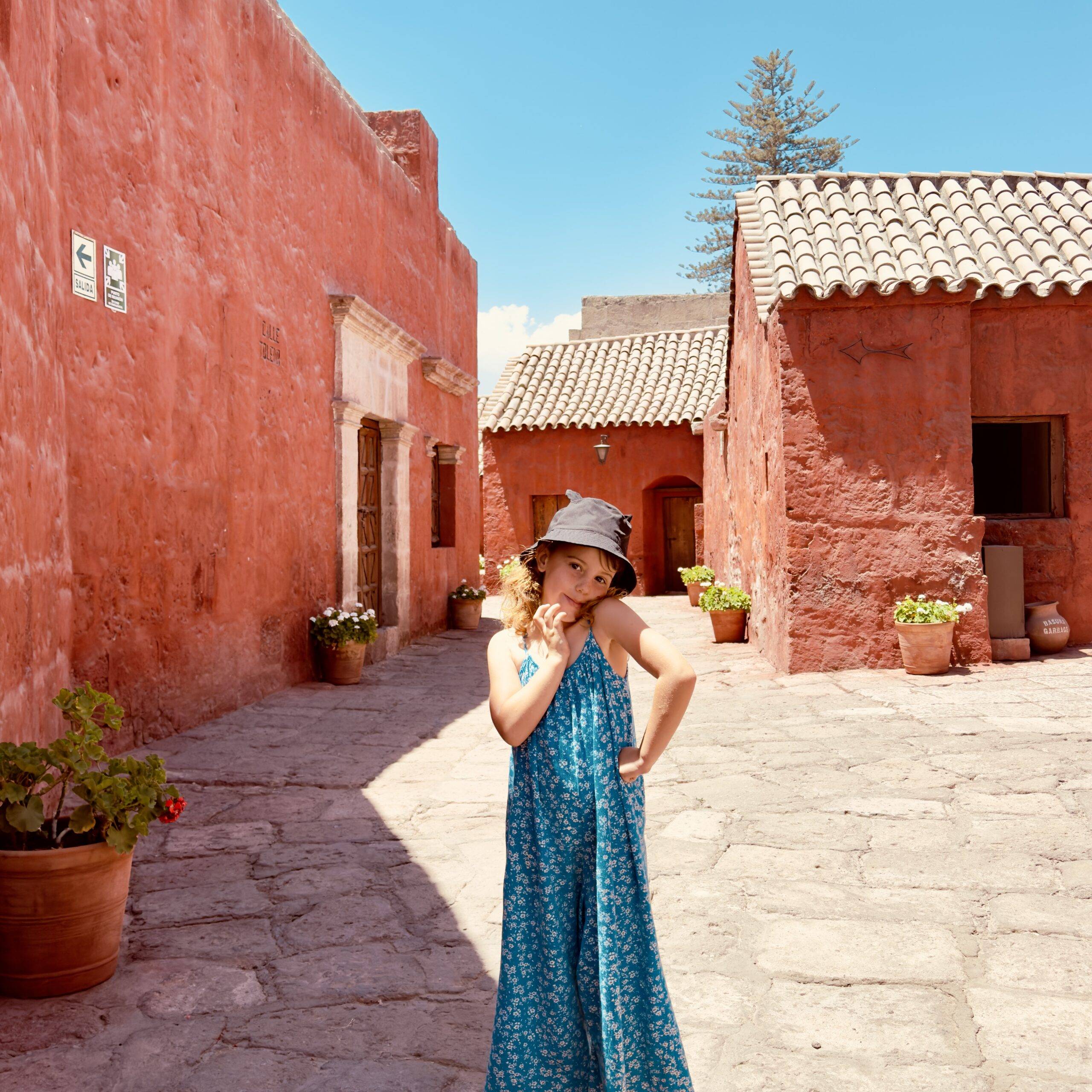
How Secure Is Airbnb Really? (Locks, Cameras & the Little Things People Worry About)
Security is one of the biggest unspoken questions families have, and honestly, it’s the part we paid the most attention to while travelling across Latin America. Because when you’re travelling with kids, “security” stops being an abstract concept and becomes: Can I sleep without worrying? Can I leave our passports here? Can my kids walk around without me hovering?
So, how secure is Airbnb really?
Short answer: secure enough, as long as you choose the right places and stay realistic.
Most Airbnbs we stayed in had solid locks, gated entrances, decent exterior lighting, and friendly neighbours who said hello every time we passed. But we also had the occasional stay where the main door lock felt like something from a 90s suitcase, or the bedroom window didn’t fully close and we had to wedge it shut with a shoe. Airbnb isn’t a hotel with standardised doors and CCTV, it’s a mixed bag.
Inside the home, we always do a quick walk-through. Check the locks. Check the windows. Make sure the balcony rails aren’t something a determined toddler could slip through. It becomes second nature, and most of the time, everything is absolutely fine.
Now, cameras.
Airbnb’s rules are strict: no cameras in private spaces, bedrooms, bathrooms, anywhere you’d reasonably expect privacy. Hosts can have cameras in shared or outdoor areas, but they must disclose them. Most follow the rules. A tiny number do not but as far as we know we have not had an issue.
Neighbourhood safety is where Airbnb varies the most. A lovely apartment means nothing if the street feels off at night. This is why we always ask the host directly about the area and double-check the street view. Some parts of Latin American cities feel totally fine during the day but become a little “stay inside with a cup of tea” at night. And that’s good information to know before you arrive with kids and backpacks.
The truth is, Airbnb can be very secure, but unlike hotels, it’s up to you to verify it. Once you know what to look for, the whole process becomes quick and almost instinctive. And when you find a place that locks well, feels comfortable, and has a host who replies like a normal human? You sleep well.
We also carry a tiny travel door lock for peace of mind, they weigh nothing and make older Airbnbs feel instantly more secure.
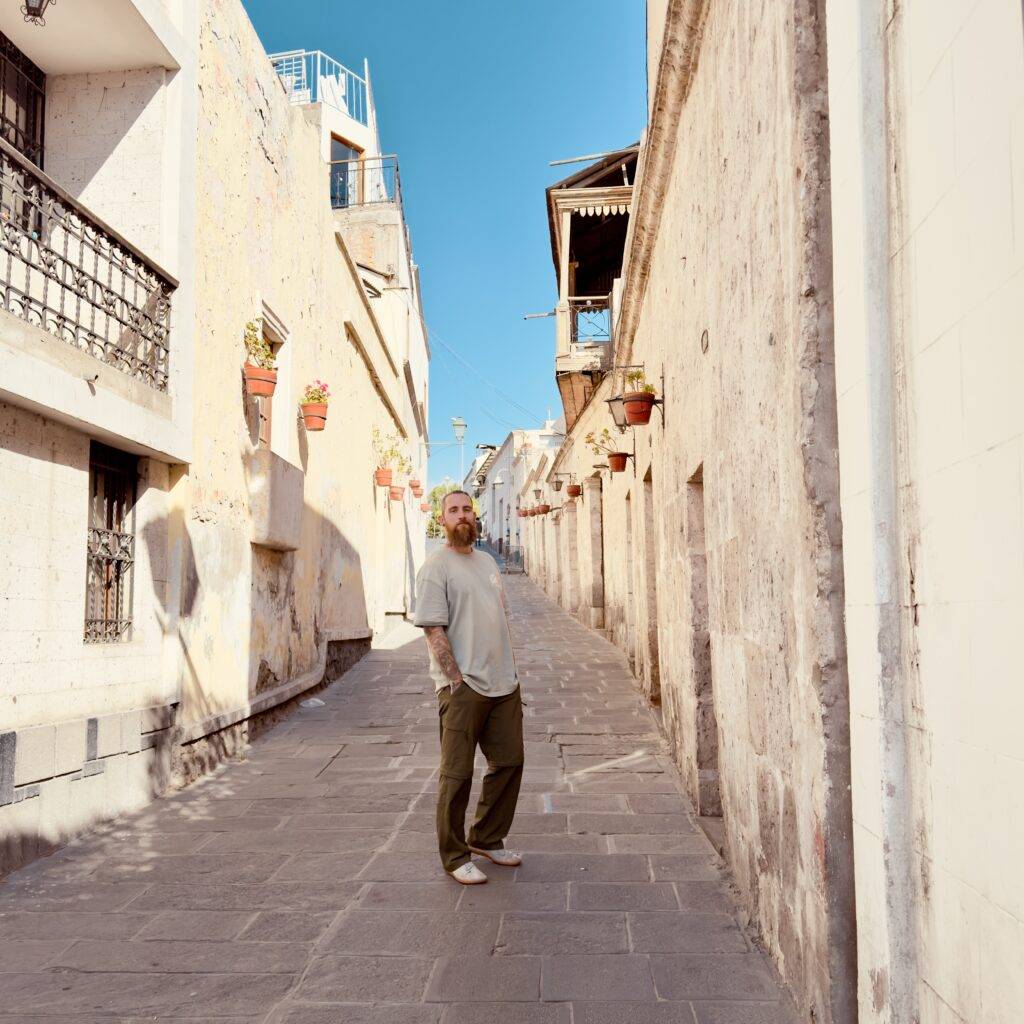
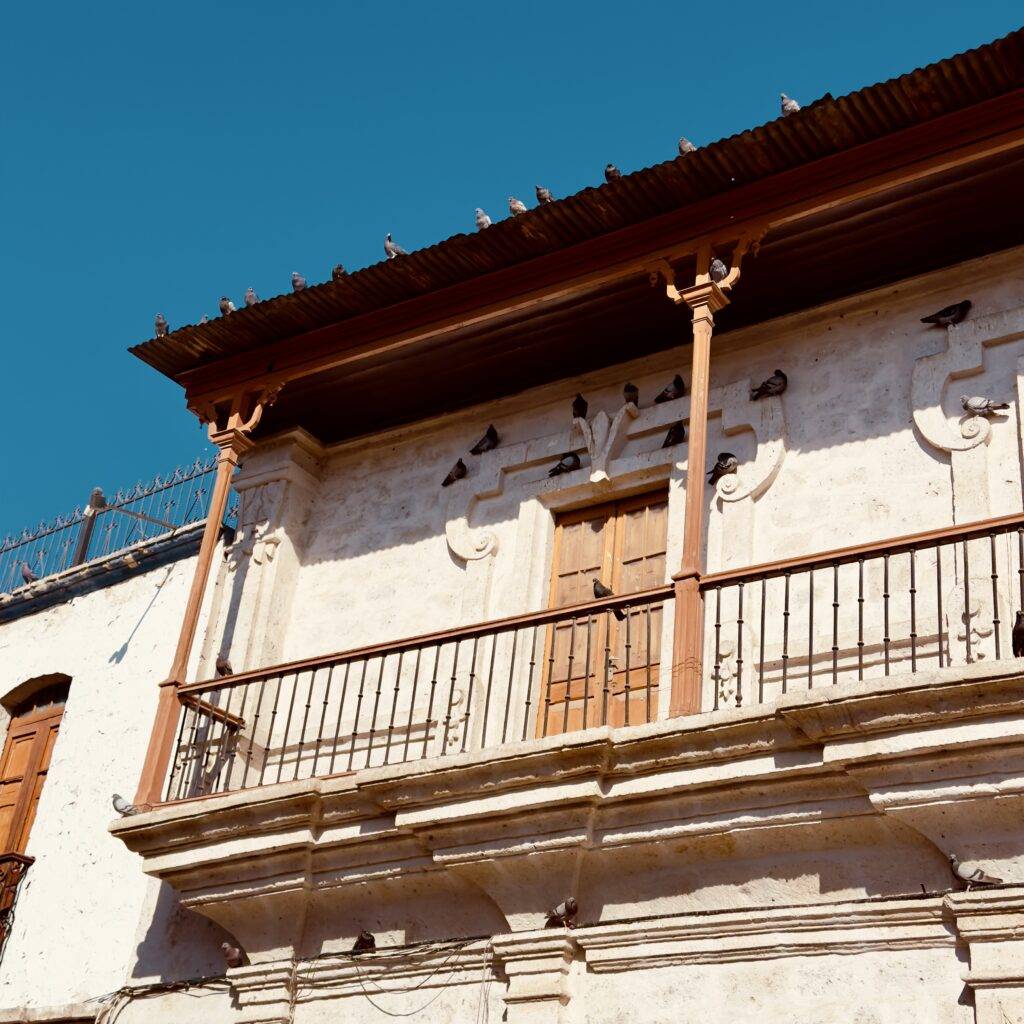
Airbnb Scams to Watch For (And How to Avoid Them Without Becoming Paranoid)
Most Airbnb stays are completely fine. Great, even. But every traveller eventually hears a horror story, someone arrives and the place looks nothing like the photos; someone gets asked to pay “privately to save fees”; someone finds out the listing doesn’t exist at all. We’ve never been scammed, thankfully, but we’ve had a few close calls that taught us exactly what to look out for.
And here’s the good news: genuine Airbnb scams are rare, and the signs are surprisingly easy to spot once you know them.
The “Too Good to Be True” Listing
If the price looks suspiciously low for the area, the photos look like they belong in a luxury magazine, and every review is from a brand-new account… that’s the classic combo. We saw this once in Lima, beautiful photos, insane price and when we reverse-searched the images, they came from a completely different hotel. Someone had ripped the photos and called it an Airbnb apartment.
We didn’t book, obviously.
The Off-Platform Payment Trick
This is the number-one scam, and Airbnb screams this in their policies:
never pay outside the app.
If a host says anything like:
“Pay me directly and I’ll give you a discount”
“Airbnb fees are high, bank transfer is easier”
“Let’s change the reservation privately”
Just walk away.
Off-app = no protection, no support, no refund.
A real host will never ask.
The “Switcheroo”
You book a lovely apartment.
You arrive and the host says, “Oh, the one you booked isn’t available — but we have this other one…”
This often happens with hosts running multiple units at different quality levels. The “replacement” is always worse.
We only fell for this once — in Arequipa — and learned the rule:
If the host tries to change the apartment after you book, politely decline and contact Airbnb immediately.
The Fake-Photo Problem
Most misleading Airbnb listings aren’t scams, they’re just staged very creatively. But sometimes the photos are actually stolen from hotels or other listings.
Quick trick we now use:
If something feels off, take a screenshot of the main photo and reverse-search it (Google Images).
If the image belongs to a resort in Mexico and your listing is in Colombia?
Yeah… no.
The “Vanishing Host”
If a host disappears right after you book, no messages, no check-in details, nothing, treat it as a warning. Good hosts communicate early. Silent hosts make everything harder, even when it’s not a scam.
We always send a polite message right after booking just to gauge responsiveness. If the host never replies, we cancel before it becomes a problem.
You don’t need to walk around suspicious of every listing.
Scams stand out once you’ve seen how legitimate hosts behave.
If you stay inside the app, choose places with a pattern of real reviews, and avoid anything “too perfect,” you’ll almost never run into trouble.
Airbnb isn’t risky when you book smart, and after 50+ stays, that’s the one thing we’re fully confident saying.
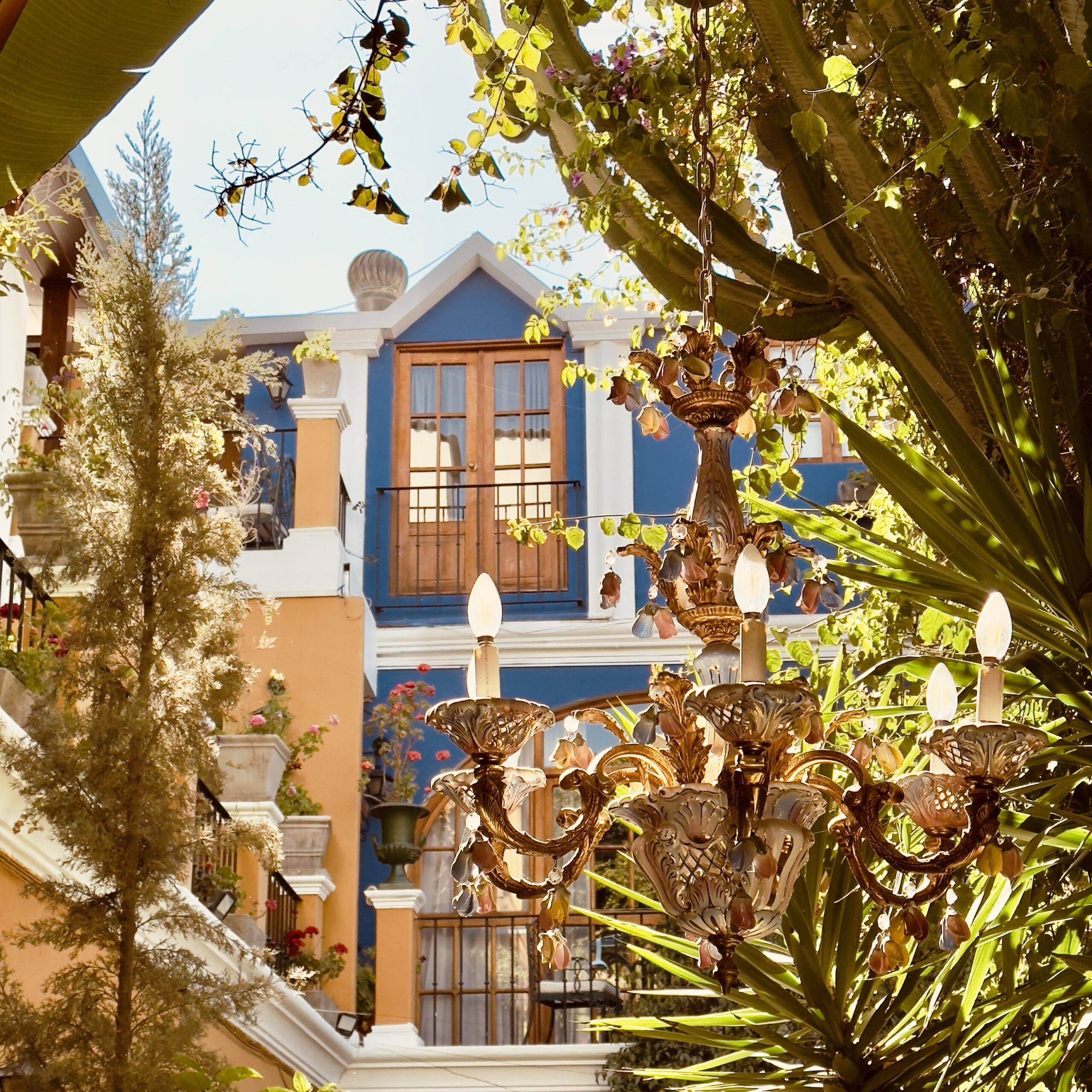
How to Pay on Airbnb (What New Users Don’t Realise Until It’s Too Late)
Airbnb’s payment system looks straightforward, but there are a few things first-time users never realise until they’re deep into their trip and suddenly wondering why their bank statement looks like it’s arguing with them. After enough stays across Latin America, we now understand exactly how Airbnb payments work and, more importantly, how to avoid the annoying fees that quietly stack up if you’re not paying attention.
The basics: Airbnb charges you upfront, in full, the moment you book. Hosts don’t receive anything until you physically check in, which is why they (and Airbnb) push to keep all communication inside the app. If a host ever asks for cash, bank transfer, PayPal, or “just pay me directly to avoid fees,” that’s not a shortcut, it’s the easiest way to lose your money and all protection.
Most travellers don’t realise how sneaky currency conversion fees can be. If you’re travelling internationally, your bank might convert the payment at a terrible rate. That’s why we switched to using Revolut/Wise, not for the aesthetics, but because we got tired of random £6 “international transaction adjustments” popping up every time we booked a place.
Refunds are another thing people misunderstand. Airbnb doesn’t “hold” your money in a way you can see, but if something goes wrong, the refund comes from them, not the host. This is why it’s so important to document problems quickly. The app will ask for screenshots, timestamps, and messages, and the more organised you are, the faster the refund process goes.
The short version?
Airbnb payments are safe, but only when you stay on the platform, use a card that doesn’t punish you for international travel, and document issues clearly when something’s not right. Once you get the rhythm, it becomes one of the least stressful parts of booking.
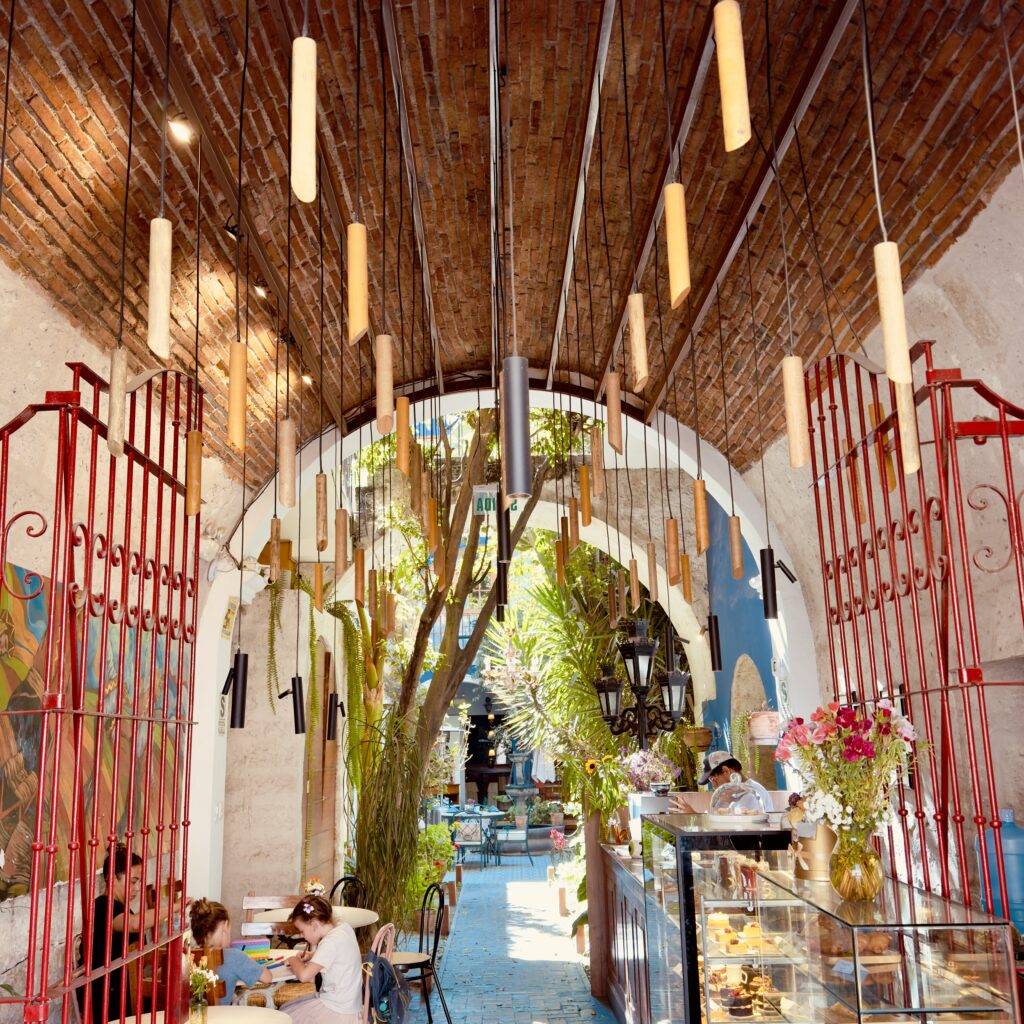
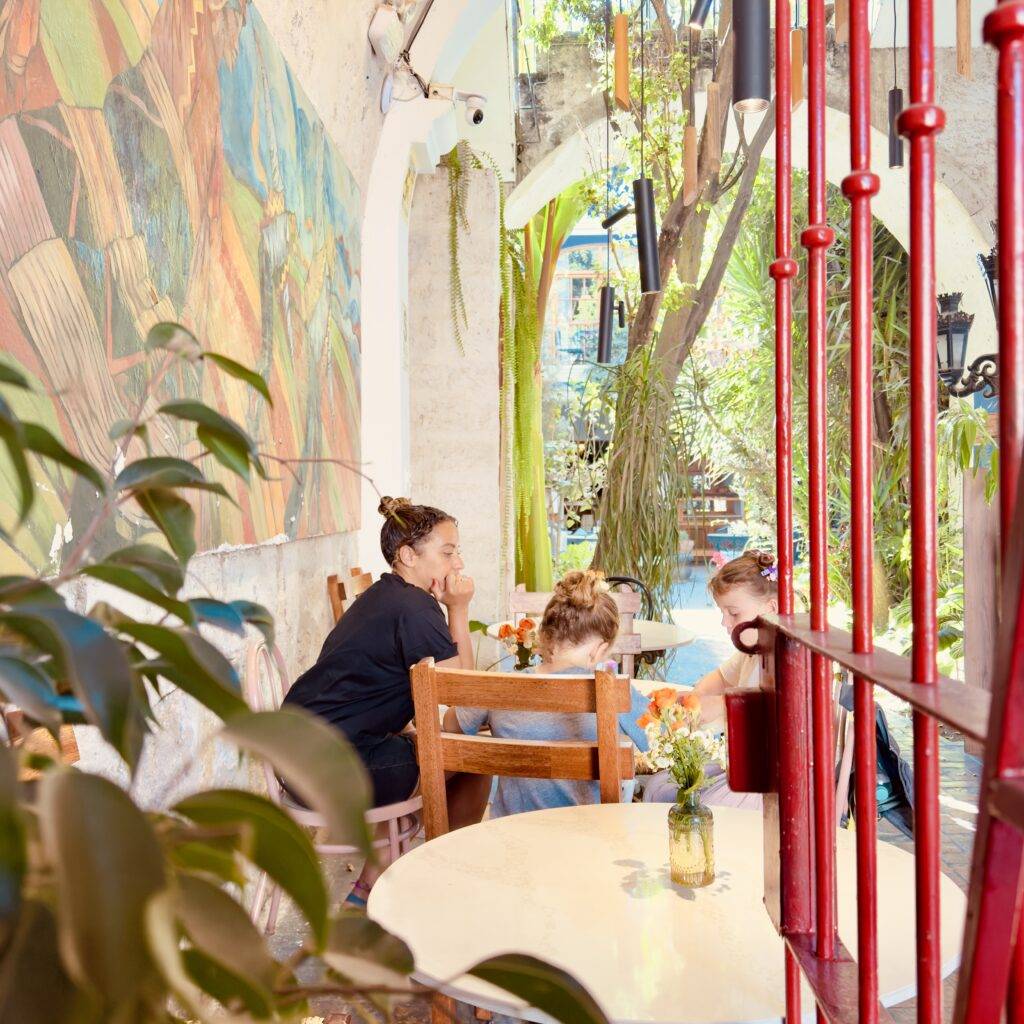
Airbnb Tips for Families (The Things That Actually Make Life Easier)
Travelling with kids completely changes what “good accommodation” means. It stops being about how pretty the place looks online and becomes all about whether it helps your family stay calm, rested, fed, and vaguely organised. After months of bouncing between Airbnbs across Latin America, these are the things that genuinely made our stays easier, not glamorous, just practical.
- Choose places that make mornings smoother
Natural light makes a bigger difference than we expected.
Bright apartments help everyone wake up and find their rhythm, while dark, cave-like spaces slow the whole morning down. If the listing photos look dim, they usually are. - Treat sleep as the priority
Fancy interiors don’t matter if nobody sleeps.
We always read reviews with one simple filter: did anyone mention noise?
One person mentioning it is fine. Multiple people mentioning it is a pattern, and not a pattern you want when you’re travelling with kids. - Make sure the kitchen is actually usable
You don’t need a chef’s setup, just enough to fix breakfast without stress.
A working fridge, a couple of pans, and enough plates for everyone make mornings far calmer. Eating out three times a day looks fun on Instagram; in real life, it wears families down fast. - Pick layouts that give everyone breathing room
Kids don’t need huge spaces, but they do need corners.
A separate bedroom, a small table for work or school, or even a sofa that isn’t on top of the beds can change the whole vibe of a stay. When kids have space to do their thing, everyone relaxes more. - Check how the host communicates
A responsive host quietly becomes the hero of the trip.
If something breaks, if the WiFi glitches, if you’re struggling with check-in, a good host sorts it fast. Slow or vague communication is usually a sign that every problem will become yours to solve.
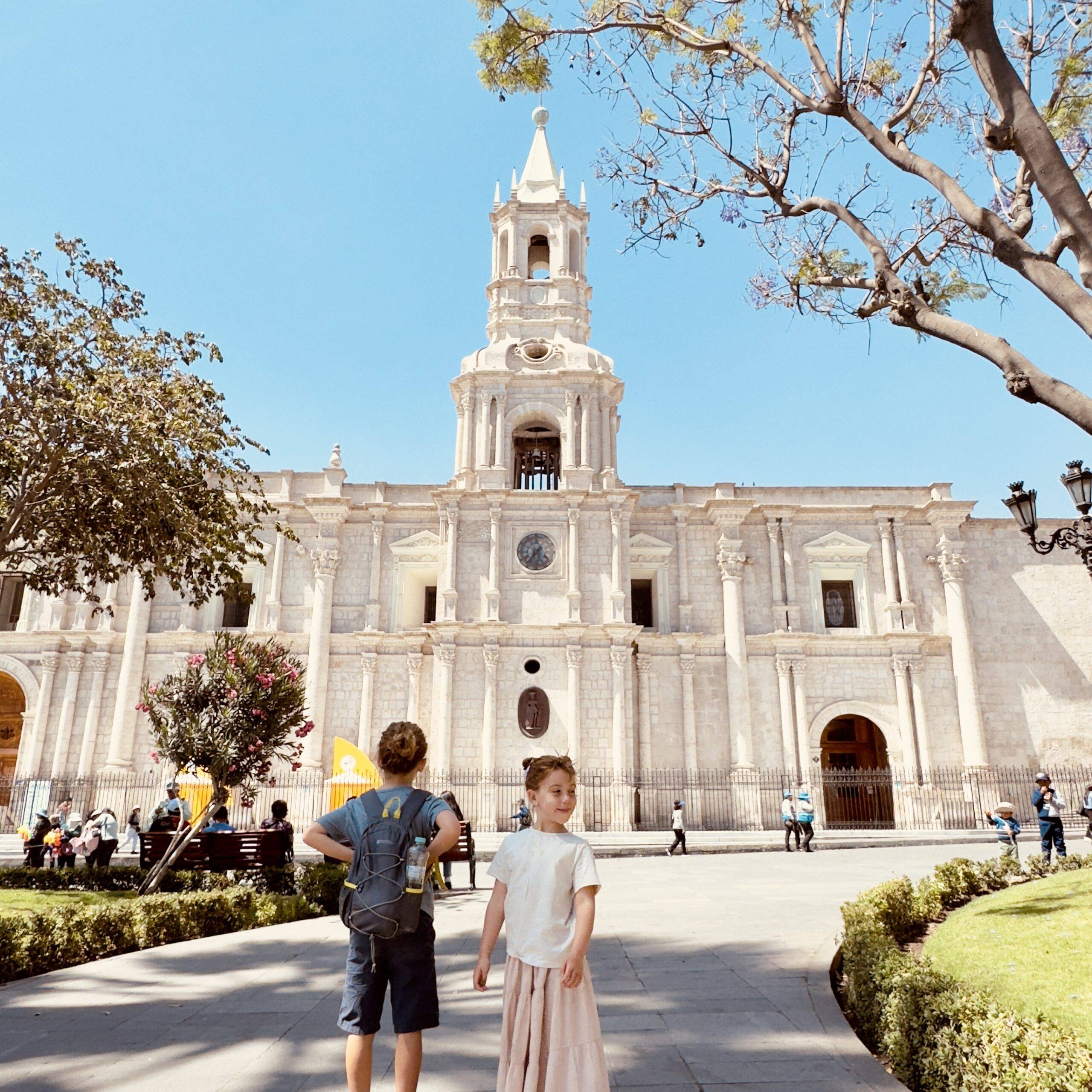
What We Learned After Dozens of Airbnbs With Kids
After months of moving from city to city and unlocking more Airbnb doors than I can count, I’ve realised that using Airbnb well isn’t about luck. It’s about patterns, the small clues you start noticing after the third “surprise” kitchen, the fifth overly enthusiastic rooster, and the tenth listing that looked brighter online than it ever did in real life.
We learned what works for us as a family, and what absolutely doesn’t.
We learned that a good host is worth more than a good sofa, that natural light changes the entire mood of a day, and that almost every problem is avoidable if you read the listing slowly instead of scrolling past the things your brain already knows are warning signs.
There are also things we simply won’t do anymore:
1. We won’t book places with unclear photos.
2. We won’t accept last-minute “we’ve put you in a different apartment” messages.
3. And we definitely won’t stay somewhere if the host disappears the moment we ask a basic question about WiFi or noise.
But here’s the thing: we still recommend Airbnb to other families all the time.
When you choose well, it gives you space, routine, flexibility, and those quiet evenings where the kids play in the next room and you finally get to breathe. It lets you settle into a place rather than just pass through it.
Airbnb can be great, genuinely great, but only if you understand how it works and treat it like choosing a temporary home, not a hotel with nicer photos.
And once you figure out the rhythm, travel starts feeling smoother, simpler, and a lot more like the adventure you always imagined.
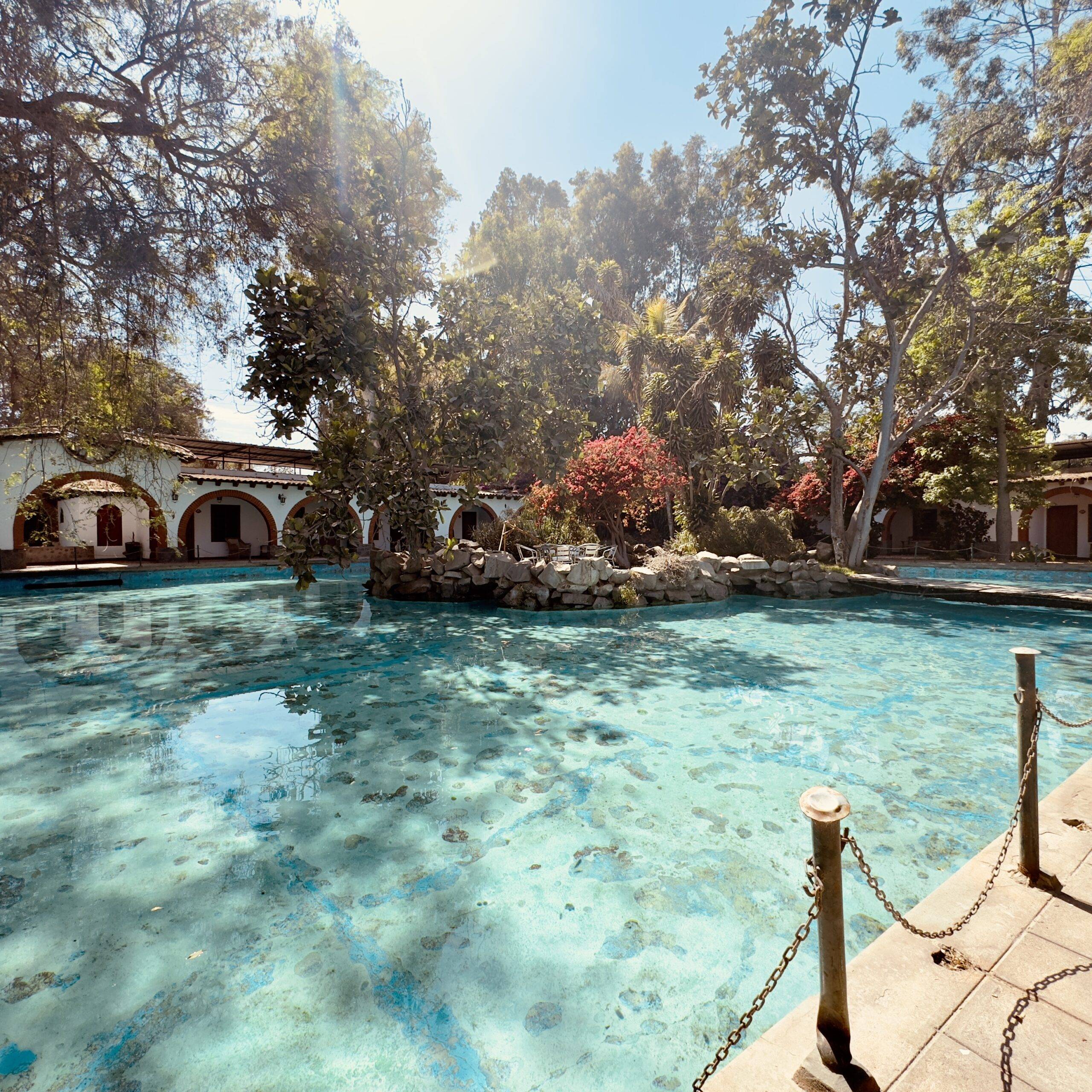
FAQ - Real Questions People Ask About Airbnb
What are the biggest red flags on Airbnb?
The biggest Airbnb red flags are missing photos, vague descriptions, new accounts with overly positive reviews, unclear map locations, and hosts who avoid answering direct questions. These usually signal that the Airbnb looks better online than it will in person.
How do you spot a sketchy Airbnb?
A sketchy Airbnb typically has inconsistent photos, last-minute availability during peak season, strangely low prices for the area, and hosts who push guests to pay outside the platform. Any Airbnb that feels “too good to be true” usually is.
What should you check before booking an Airbnb?
Before booking an Airbnb, read reviews for noise, cleanliness, neighbourhood safety, and WiFi strength. Confirm the photos match the description, check the map location yourself, and message the host with one or two simple questions to test responsiveness.
Is Airbnb safe for families?
Airbnb is generally safe for families when you choose places with strong reviews, clear communication, good locks, and a neighbourhood that feels comfortable day and night. Families should prioritise location and host responsiveness above aesthetics.
What are the downsides of Airbnb?
Common Airbnb downsides include inconsistent standards, noise issues, cleaning fees, last-minute cancellations, and kitchens that aren’t as functional as advertised. Unlike hotels, Airbnb quality varies widely between listings.
How do you avoid Airbnb scams?
You avoid Airbnb scams by never paying outside the platform, avoiding listings with stolen or overly polished photos, reverse-searching suspicious images, and cancelling immediately if a host tries to switch you to a “different” apartment. All payments should remain through Airbnb.
How secure are Airbnb locks?
Airbnb locks range from excellent to flimsy, depending on the property. Most are secure, but families should always check the main door, windows, and balcony railings on arrival. A small portable travel lock adds peace of mind if the Airbnb has older hardware.
Can Airbnbs have cameras?
Airbnbs can only have cameras in shared or outdoor spaces, and every camera must be fully disclosed in the listing. Cameras are never allowed in private spaces like bedrooms or bathrooms. If you’re unsure, do a quick visual scan when you arrive.
How do you pay safely on Airbnb?
You pay safely on Airbnb by keeping all payments inside the app with a debit or credit card. Avoid bank transfers, WhatsApp links, and “pay me directly for a discount” messages — those instantly void Airbnb protection and are a major scam indicator.
Why do some people avoid Airbnb?
Some people avoid Airbnb because of unpredictable quality, cleaning fees, inconsistent communication, and neighbourhood uncertainty. Others prefer hotels for simplicity, especially when arriving late at night or staying only one or two nights.
Are Airbnbs cheaper than hotels?
Airbnbs can be cheaper than hotels for longer stays or families needing a kitchen, but not always. Short stays with cleaning fees often cost more than a hotel. Monthly Airbnb discounts can make longer stays significantly cheaper.
How do Airbnb refunds work?
Airbnb refunds depend on the host’s cancellation policy and whether there’s documented evidence of a problem. Guests get the fastest refunds when they report issues immediately inside the app with photos, screenshots, and timestamps.
What should you message a host before booking an Airbnb?
Before booking an Airbnb, send a simple message asking about WiFi strength, noise at night, or neighbourhood safety. The host’s tone and clarity tell you more about the Airbnb than the listing ever will.
What are common Airbnb complaints?
Common Airbnb complaints include noise, cleanliness problems, weak WiFi, cold showers, inaccurate photos, and hosts who respond slowly when something breaks. These usually show up in reviews if you read them carefully.
Is Airbnb safe in Latin America?
Airbnb is generally safe in Latin America when you stay in well-reviewed areas, choose responsive hosts, and check neighbourhood location carefully. Safety varies more by area than by country, so the map pin and reviews matter more than anything else.

